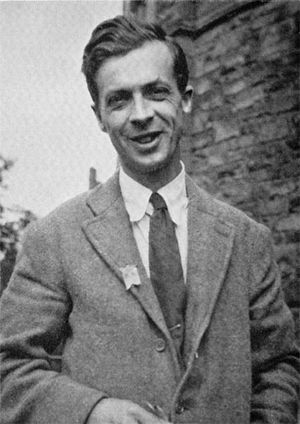3.4 The Eclipse of Darwinism

The eclipse of Darwinism was a phrase used by Julian Huxley to describe the state of affairs prior to the modern evolutionary synthesis when evolution was widely accepted in scientific circles but relatively few biologists believed that natural selection was its primary mechanism.
3.4.1 Reasons for the Search for Alternatives
Evolution was widely accepted in scientific circles within a few years after the publication of “Origin”, but the acceptance of natural selection as its driving mechanism was much less widespread. Natural selection, with its emphasis on death and competition, did not appeal to many naturalists because they felt it was immoral and left little room for teleology (purpose) or the concept of “progress” in the development of life. In addition, some felt that natural selection would be too slow, given the estimates of the age of the earth and sun (10–100 million years) being made at the time by physicists such as Lord Kelvin.
3.4.2 Theistic Evolution
Theistic evolution was the idea that a God intervened in the process of evolution to guide it in such a way that the living world could still be considered to be designed. Asa Gray considered natural selection to be important but believed that God influenced the variations on which it acted. George Jackson Mivart and the Duke of Argyle both rejected natural selection altogether. Scientists became more and more committed to the idea of methodological naturalism and came to believe that direct appeals to supernatural involvement were scientifically unproductive. By 1900 it had completely disappeared from mainstream scientific discussions, although it continued to be used as a way to reconcile religious belief with scientific discoveries among non-scientists.
Three of the four major denominations of Judaism (Reconstructionist, Reform, and Conservative) accept theistic evolution. Within Orthodoxy, there is much debate about the issue. Most Modern Orthodox groups accept theistic evolution and most Ultra-Orthodox groups do not.
Advocates of theistic evolution within Judaism follow two general approaches:
i- Either the creation account in the Torah is not to be taken as a literal text, but rather as a symbolic work.
ii- Alternatively, the ‘days’ do not refer to 24-hour periods.
In the latter view, Jewish scholars point out how the order of creation in Genesis corresponds to the scientific description of the development of life on Earth -the sun, then earth, then oceans, then oceanic plant life, fish preceding land-based life, with mammals and finally humans last- and in no way specifies the method of creation in a manner prohibitive of evolution.
3.4.3 Neo-Lamarckism
The term Lamarckism was used for the idea that characteristics acquired during the course of an organism’s life could be inherited by the next generation. Although Alfred Russell Wallace completely rejected the concept in favour of natural selection, Charles Darwin had included what he called “Effects of the increased Use and Disuse of Parts”, as controlled by Natural Selection in “On the Origin of Species”, giving examples such as large ground feeding birds getting stronger legs through exercise, and weaker wings from not flying until, like the ostrich, they could not fly at all. In the late 19th century the term neo-Lamarckism came to be associated with the position of naturalists who viewed the inheritance of acquired characteristics as the most important evolutionary mechanism. Advocates of this position considered Lamarckism to be philosophically superior to Darwin’s idea of selection acting on random variation. Cope and Haeckel both believed that evolution was a progressive process. Cope looked for, and thought he found, patterns of linear progression in the fossil record. The idea of linear progress was also an important part of Haeckel’s recapitulation theory of evolution.
Critics of neo-Lamarckism pointed out that no one had ever produced solid evidence for the inheritance of acquired characteristics. The experimental work of the German biologist August Weismann led him to declare that inheritance of acquired characteristics was flatly impossible, since the Weismann barrier would prevent any changes that occurred to the body after birth from being inherited by the next generation.
3.4.4 Baldwin Effect
As a consequence of the debate over the viability of neo-Lamarckism in the 1890s James Mark Baldwin, Henry Fairfield Osborne and C. Lloyd Morgan all independently proposed a mechanism where new learned behaviours could cause the evolution of new instincts and physical traits through natural selection without resort to the inheritance of acquired characteristics. They proposed that if individuals in a species benefited from learning a particular new behaviour, the ability to learn that behaviour could be favoured by natural selection, and the end result would be the evolution of new instincts and eventually new physical adaptations.
3.4.5 Orthogenesis
Orthogenesis or orthogenetic evolution was the hypothesis that life has an innate tendency to change, in a unilinear fashion, towards ever-greater perfection. Orthogenesis was particularly popular among some palaeontologists, who believed that the fossil record showed a gradual and constant unidirectional change. The orthogenesis hypothesis began to collapse when it became clear that it could not explain the patterns found by palaeontologists in the fossil record, which were non-linear and contained many complications.
3.4.6 Saltationism
Saltationism was the idea that new species arise as a result of large mutations. It was seen as a much faster alternative to the Darwinian concept of a gradual process of small random variations being acted on by natural selection. This later became the basis of the mutation theory of evolution.

